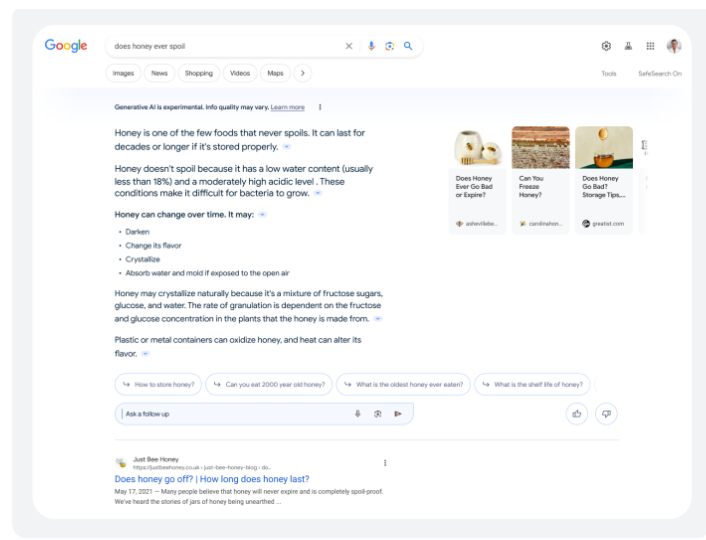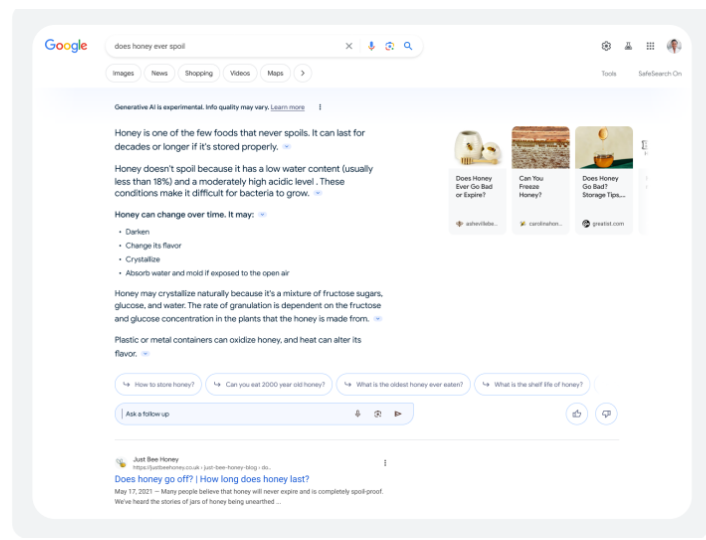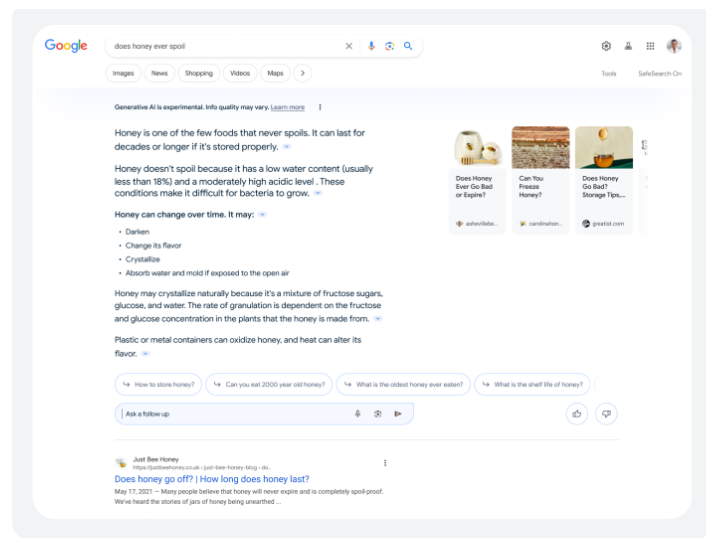Age of SGE: How Will AI Affect Search Traffic in the Next Decade?

By Harry Mackin
Ever since advancements in technology thrust generative AI into the public consciousness, it’s been the subject of unending controversy. Much of this controversy centers on its potential impact on the internet, with some news outlets and experts going so far as to describe it in near-apocalyptic terms.
“AI is killing the internet” became a common refrain in those early days, speaking to the dread and apprehension being felt regarding its disruption to the way things have been done online.
Given all this concern, it’s not surprising that Google’s bold new foray into generative AI, Google Search Generative Experience (SGE) has elicited big reactions. With search engines and SEO being such a core aspect of digital marketing, there’s understandably a lot of attention being paid to the ripple effects of this evolution in search.
As a marketer, here’s what you need to know about Google SGE and the broader impact of AI on search.
What is Google SGE?
Google Search Generative Experience is Google’s new approach to incorporating generative AI into their search algorithm. When in use, SGE will provide an “AI-powered snapshot” of information requested in a query at the top of the resulting search engine results page (SERP). These snapshots will provide a quick overview of the topic, with information collected, composited, and arranged from top results by the generative AI.
The screenshot below, from Google’s overview of SGE, provides an example of what one of these AI-powered snapshots looks like:
Reactions to Google SGE
Google SGE has received significant attention and criticism, primarily focused on how the tool will disincentivize users from actually clicking through to the websites surfaced in the search.
The Atlantic, which says it gets up to 40% of its current traffic from Google, recently published an analysis on the subject and concluded: “75% of the time, the AI-powered search would likely provide a full answer to a user’s query.” As a result, Wall Street Journal reported that publishers expect to lose “between 20% and 40% of their Google-generated traffic” in a post-SGE landscape.
Other publishers and SEO experts are less concerned. While Forrester Research Senior Analyst Nikhil Lai was recently quoted by Reuters saying SGE is “definitely going to decrease publishers’ organic traffic, and they’re going to have to think about a different way to measure the value of that content if not click-through rate,” he also said he believes appearing in the new SGE-provided summaries will help protect and enhance publisher reputation.
Some SEO experts even believe that Google SGE could …read more
Source:: Top Rank Blog









